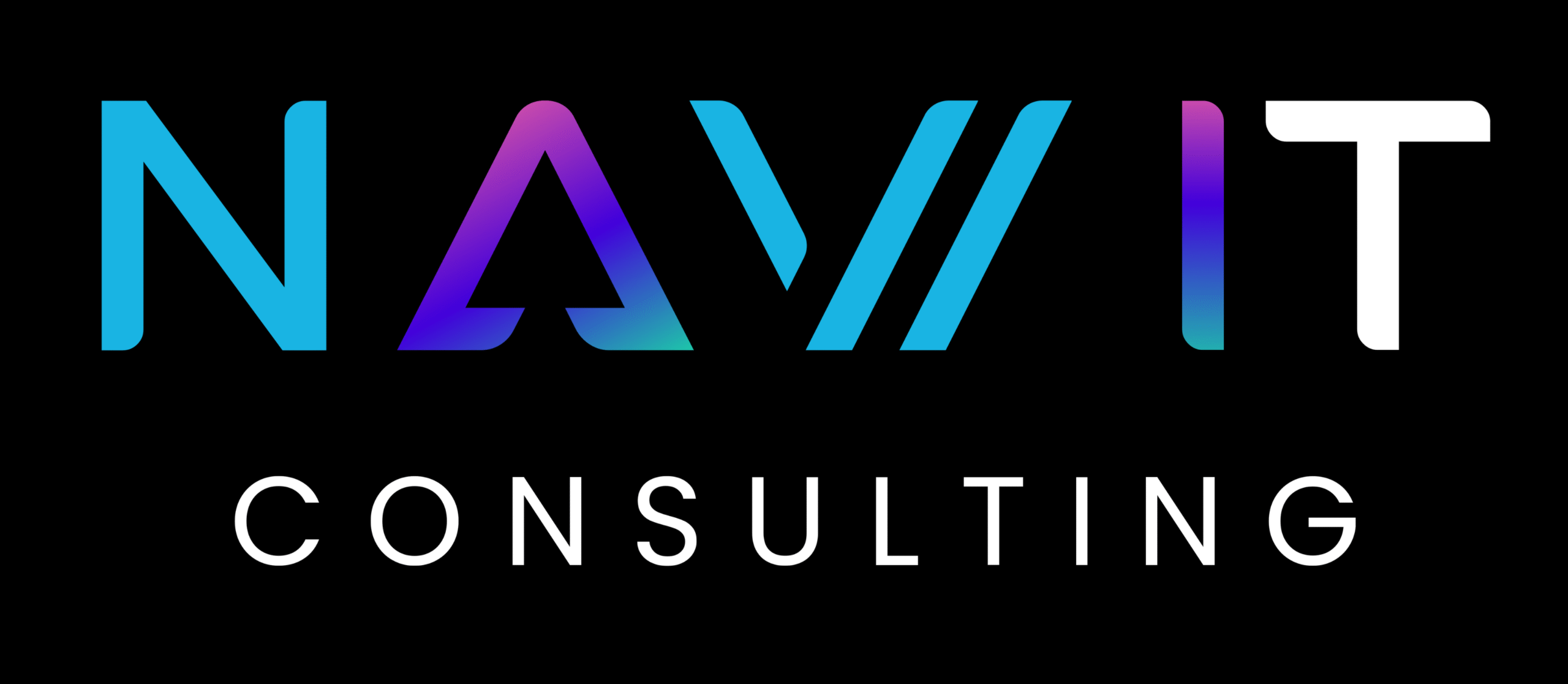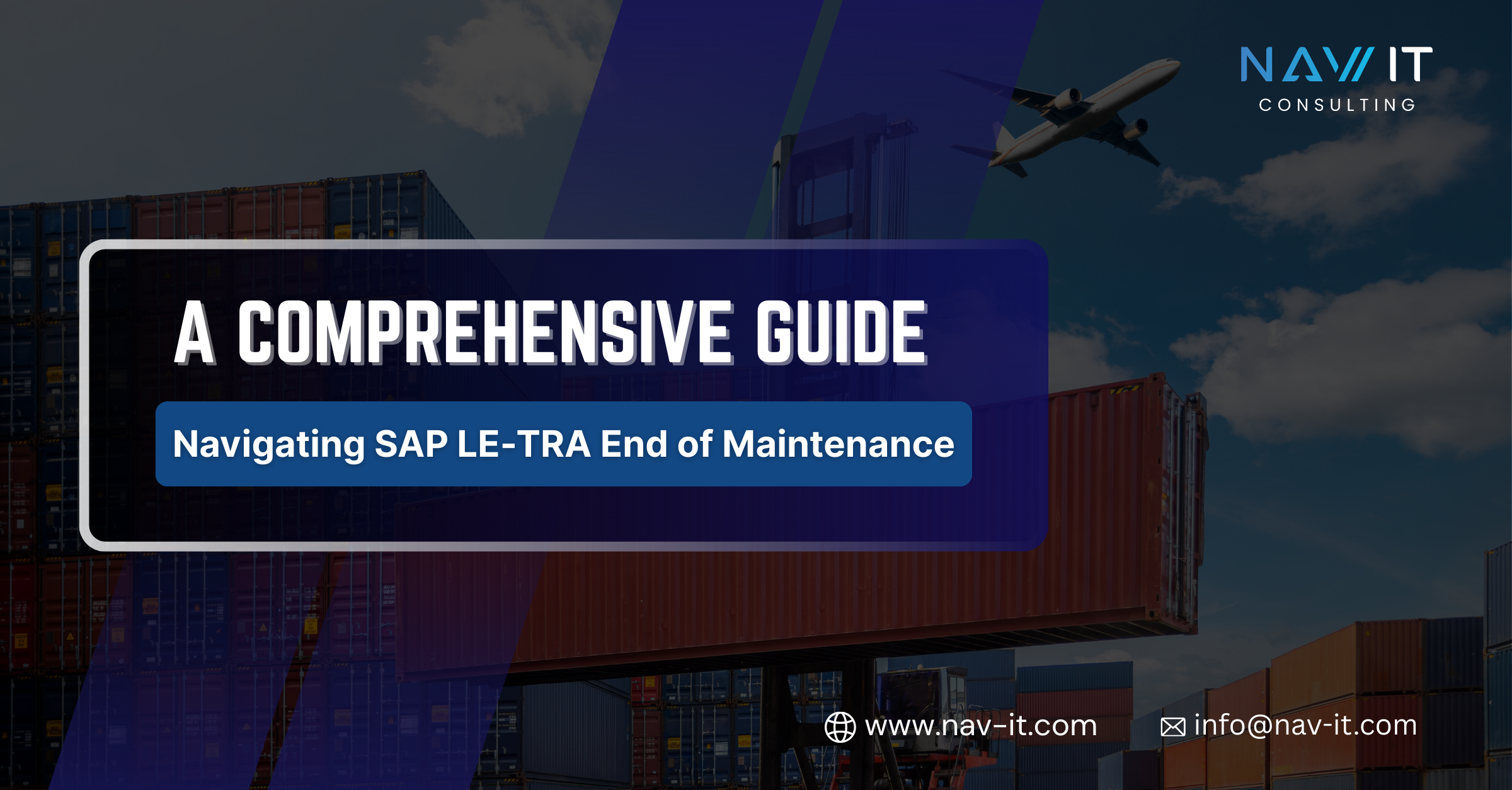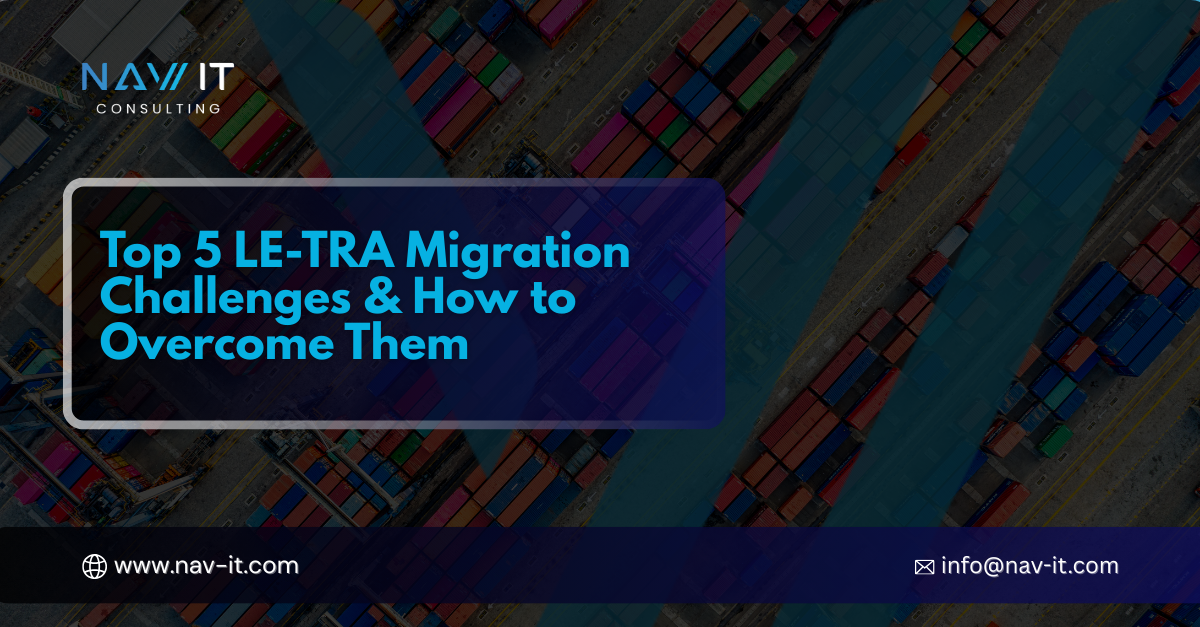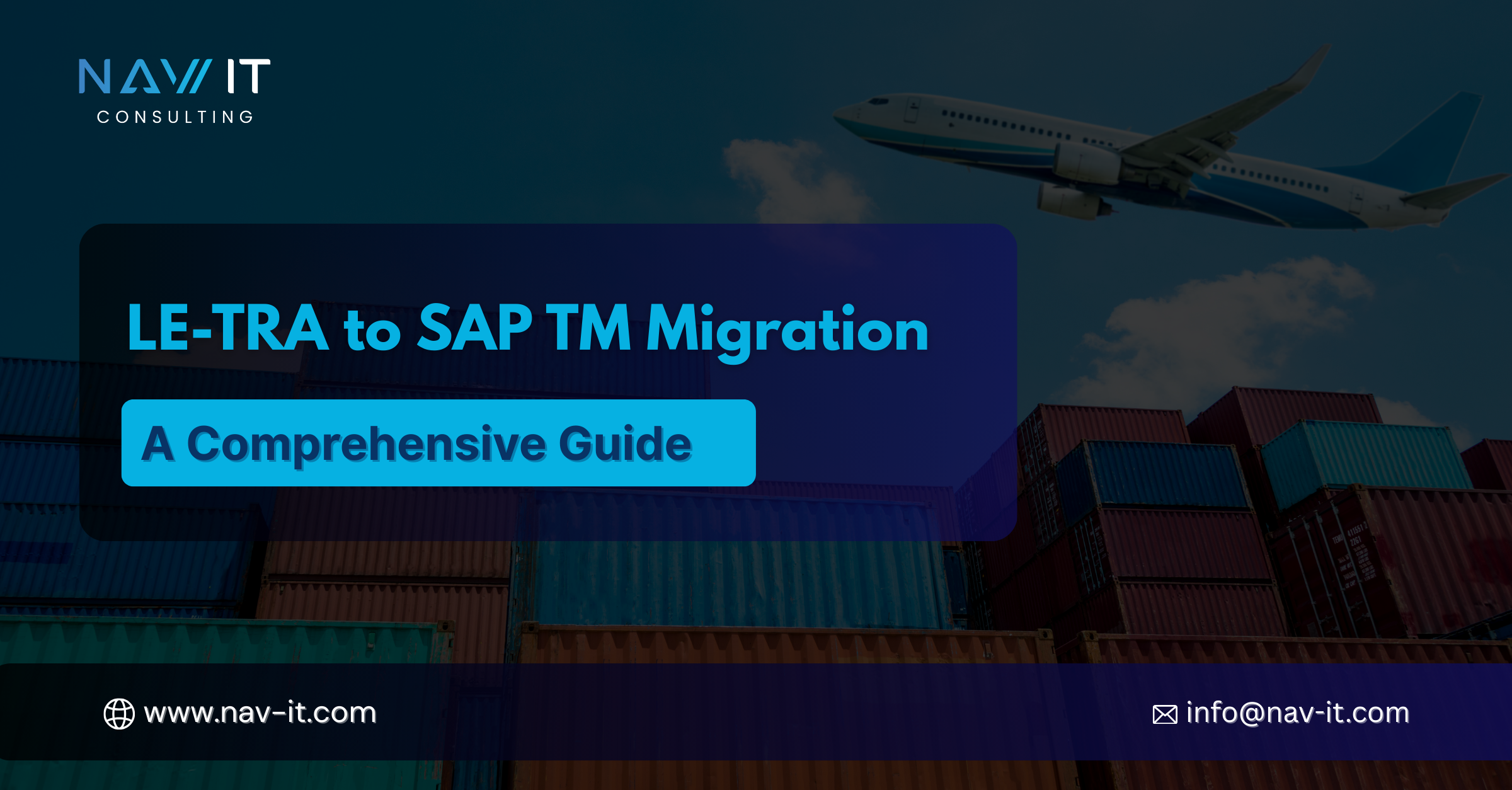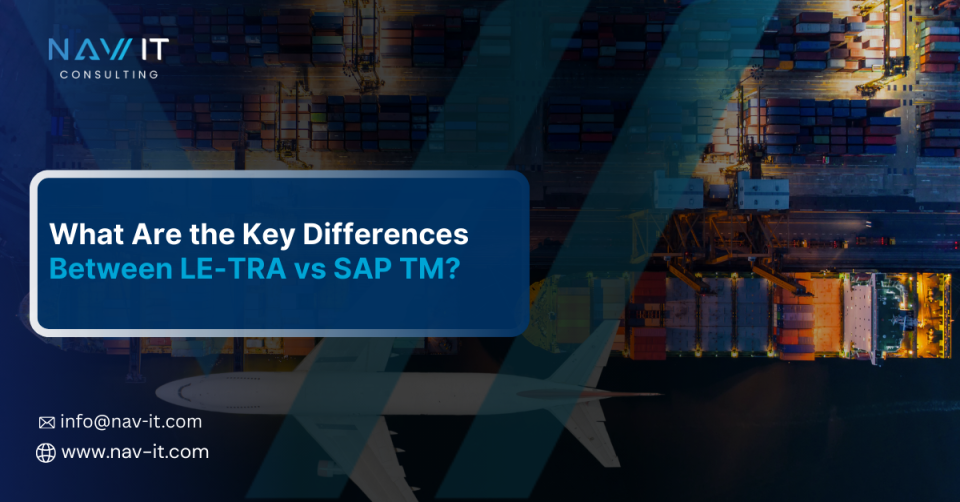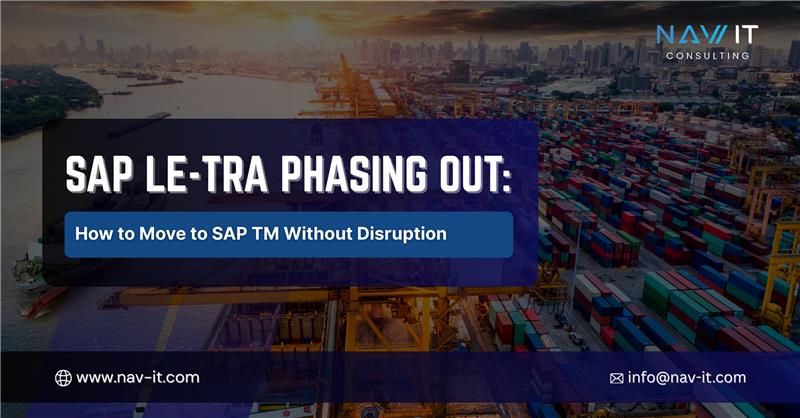In this blog, we examine a scenario at NAV Chemicals GmbH, a company operating two warehouses in different regions:
- An internal warehouse managed by NAV Chemicals
- An external warehouse managed by a third-party service provider
While this structure supports operational flexibility, it also introduces important requirements around data security and regional visibility:
- Internal warehouse data must not appear in the external User system, and vice versa.
- Logistics managers and accounts teams in each region should only have access to charges, settlement document, and disputes related to freight orders for their respective region.
To address these requirements, SAP Business Network for Logistics – Freight Collaboration provides a range of Shipper roles. In this blog, we will focus on two major roles that enable secure, region-specific visibility and efficient collaboration.
By understanding these roles, companies can strengthen data security while enabling region-specific insights and smoother freight collaboration.
1. Roles based on Location for Dock Appointment Scheduling
2. Roles based on Purchase Organisation for Managing Disputes
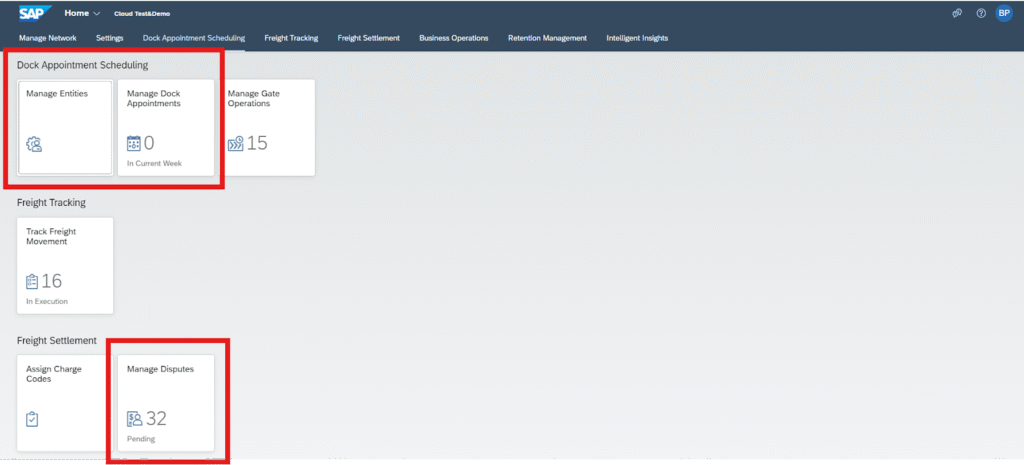
1. Roles based on Location for Dock appointment Scheduling
Let’s consider an example with NAV Chemicals:
- Frank: an internal warehouse employee located in Bonn, Germany (Shipping Point: SP_1000)
- Thomas: an external warehouse employee in Paris, France (Shipping Point: SP_2010)
Both Frank and Thomas require access to the BN4L Shipper tenant to view planned shipments for the day, week, or month in the Dock Appointment Scheduling app.
However, when General user roles are assigned, both Frank and Thomas can:
- See all applications available in the BN4L Shipper tenant
- Access all shipping locations defined in the Dock Appointment Scheduling app
(The screenshot below shows the general user role with unrestricted access.)
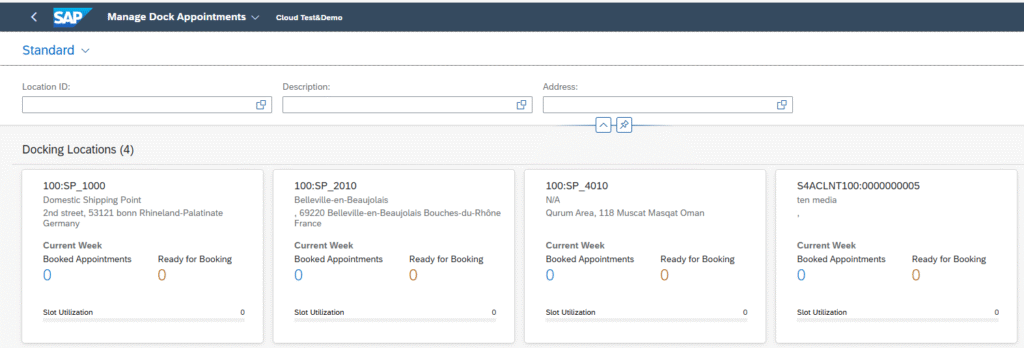
To address this, roles based on locations can be defined. This allows you to:
- Restrict user access to a specific shipping point/loading point/Docking location
- Control whether a user can only view booked appointments or also edit dock appointments
In the example below, two different roles have been created to provide access only to the required locations: Frank – SP_1000 and Thomas – SP_2010.
Role 1: Location access SP_1000
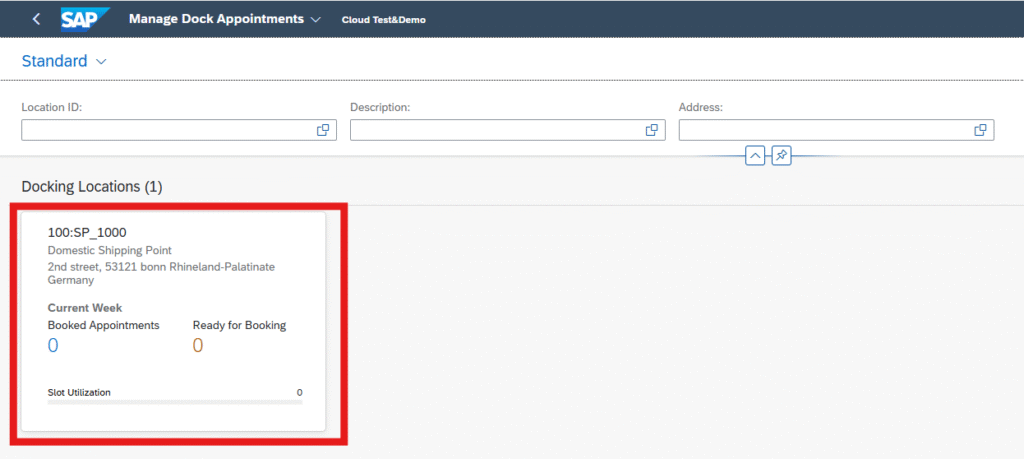
Role 2: Location access SP_2010
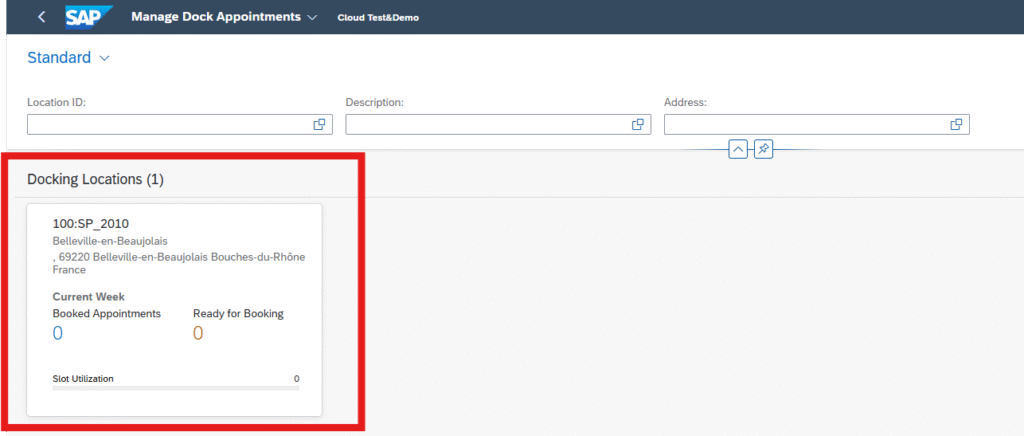
2. Roles based on Purchase Organisation/Ordering party for Managing Disputes
In a similar way to the warehouse scenario, User access in the BN4L Shipper tenant can also be restricted based on Freight Orders linked to a specific Purchase Organization in the Manage Dispute app.
With this approach, Users are limited to handling only the Freight Orders relevant to their assigned Purchase Organization. This means they can:
- Accept or reject dispute costs
- Propose revised costs
— but only for the Freight Orders associated with their own Purchase Organization.
When general roles are assigned, users can view Freight Orders from multiple Purchase Organizations, as shown in the screenshot below.
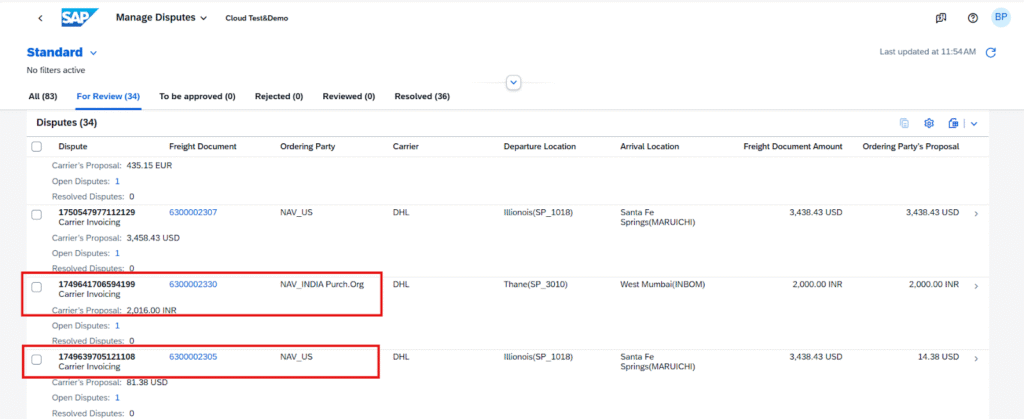
By creating roles based on Purchase Organization, access is narrowed so that users only see the Freight Orders tied to their specific ordering party. The screenshot below illustrates how this restriction works in practice.
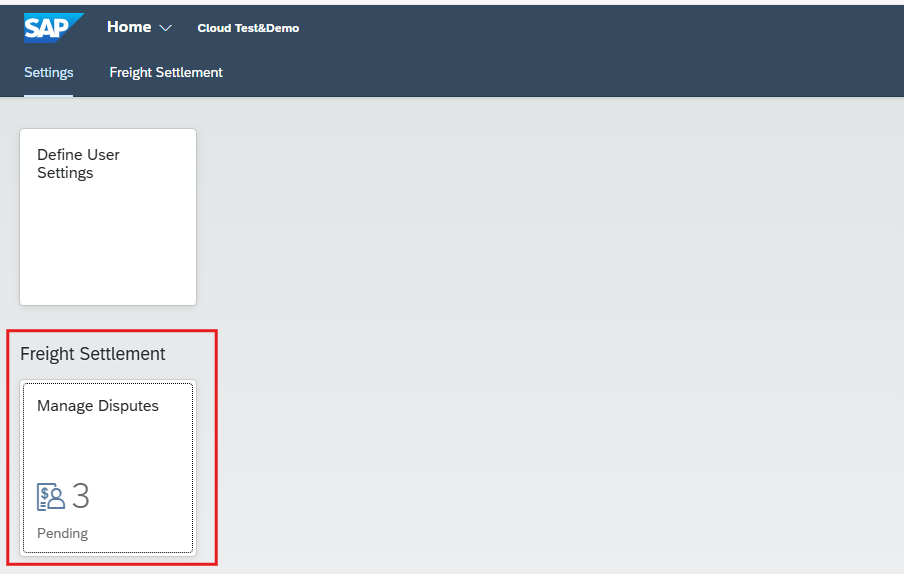
Role 1: As Frank is responsible for managing disputes for NAV_US, he has been provided with Manage Dispute app access for NAV_US.
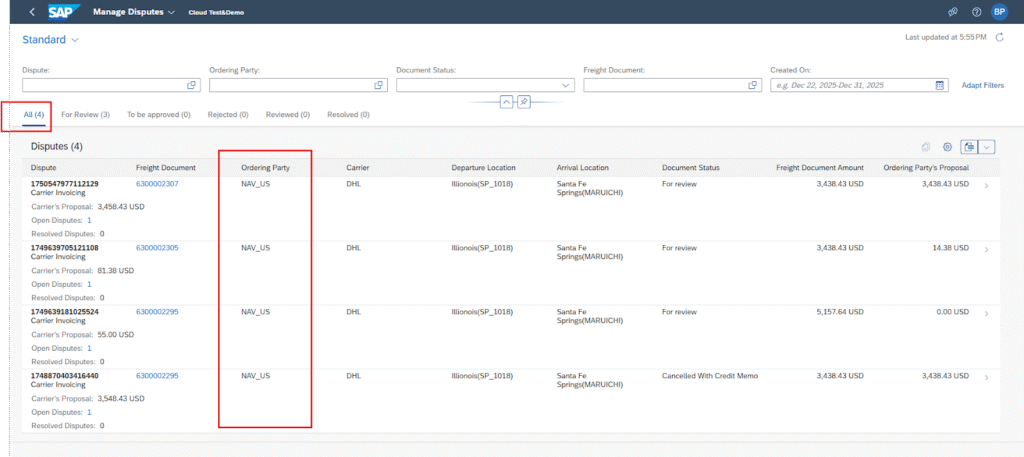
Role 2: As Thomas is responsible for managing disputes for NAV_INDIA, he has been provided with Manage Dispute app access for NAV_INDIA.
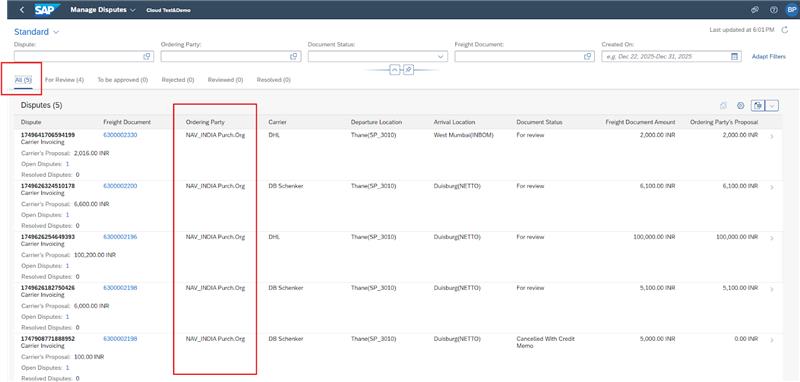
The key benefit of creating roles for shippers is that it eliminates the need for multiple sub-accounts, allowing all Users to be managed within a single Shipper tenant. This not only simplifies administration but also ensures that User access is aligned with specific business responsibilities.
By applying these role-based approaches, NAV Chemicals is able to protect sensitive data while maintaining Visibility, control, and efficiency in day-to-day operations.
Please reach out to us if you have more questions related to roles and authorizations in SAP BN4L.
